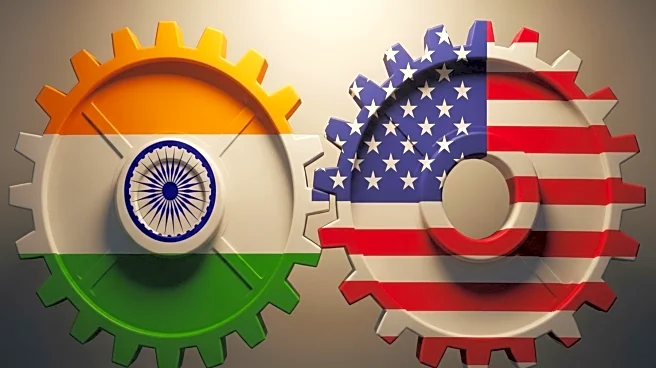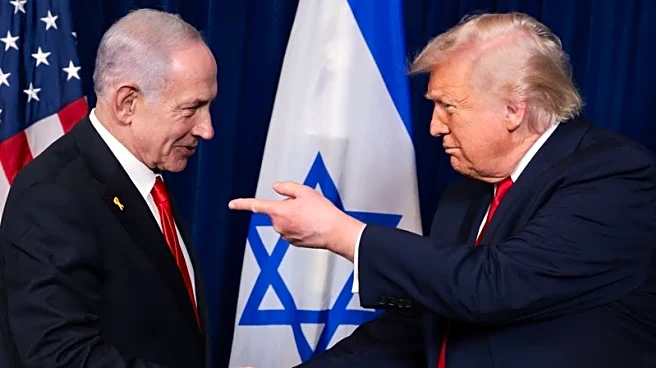What's Happening?
Commerce and Industry Minister Piyush Goyal has issued a strong statement against the weaponization of trade, emphasizing India's commitment to self-reliance and robust supply chains. His comments come in response to the United States imposing a 50% tariff on Indian goods, escalating trade tensions. Speaking at the CII Partnership Summit in Visakhapatnam, Goyal highlighted India's strategy to build resilient supply and value chains, ensuring the country is not vulnerable to trade conflicts. He reassured global investors of India's potential despite the challenging trade environment, positioning India as a key player in global commerce.
Why It's Important?
The imposition of steep tariffs by the U.S. on Indian goods marks a significant moment in international trade relations, potentially affecting bilateral trade dynamics. India's response, focusing on self-reliance and supply chain resilience, underscores a shift towards economic independence and reduced dependency on foreign markets. This approach could lead to increased domestic production and innovation, impacting global supply chains and trade patterns. For the U.S., these tariffs may strain diplomatic relations and affect American businesses reliant on Indian imports, highlighting the broader implications of trade policies on international partnerships.
What's Next?
India's focus on self-reliance may lead to policy shifts aimed at strengthening domestic industries and reducing import dependency. This could involve increased investment in local manufacturing and technology sectors. The U.S. and India may engage in further trade negotiations to address tariff disputes and explore mutually beneficial agreements. Global investors will likely monitor these developments closely, assessing the impact on market opportunities and investment strategies. The situation may also prompt discussions on the future of global trade policies and the role of tariffs in international economic relations.










